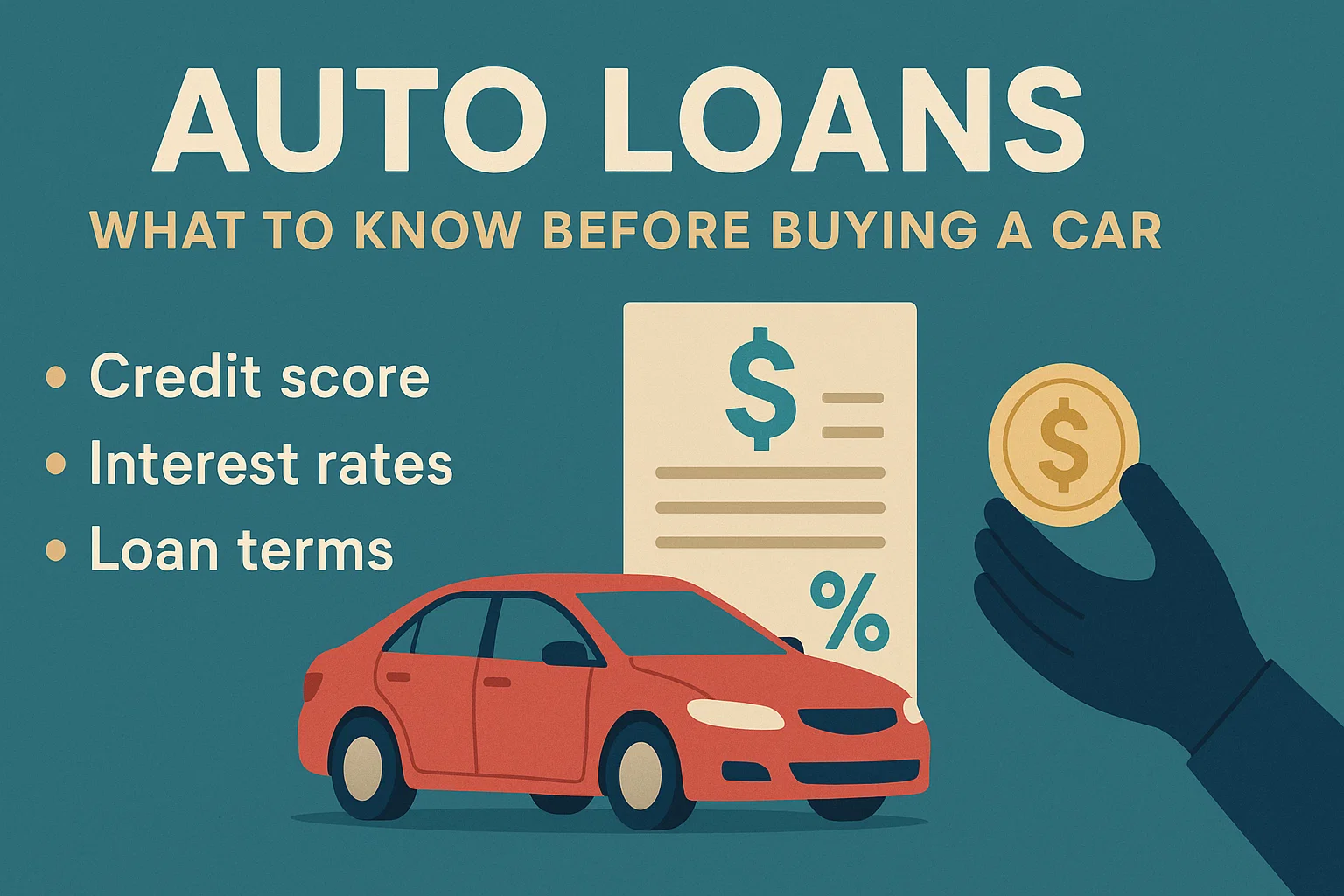Breaking News
Popular News




Enter your email address below and subscribe to our newsletter

Purchasing a car is a major milestone—but unless you’re paying upfront, you’ll likely need an auto loan. Understanding how auto loans work is crucial to avoid hidden fees, inflated EMIs, or poor credit implications. In this article, we’ll break down everything you need to know before signing that loan agreement.
Auto loans are financing arrangements that allow individuals to buy a vehicle by borrowing money from a lender, which is repaid in monthly installments (EMIs) over a fixed term. Banks, NBFCs, and even digital lenders offer these loans with various terms and interest rates.
A strong credit score helps you get better interest rates. Aim for 700+ before applying for auto loans.
Don’t settle for the first offer—compare multiple lenders (banks and NBFCs) to secure the lowest rate.
Longer tenure = lower EMI but higher interest paid overall. Find a balance that suits your budget.
Interest rates for used car auto loans are usually higher. Be aware of this while deciding your purchase.
Lenders often include documentation, prepayment, or foreclosure charges—read the fine print carefully.
Some banks offer pre-approved auto loans to existing customers with lower documentation.
Use digital tools to estimate monthly payments and interest, helping you plan ahead.
Q1. What is the minimum credit score needed for an auto loan?
Most banks require a score of at least 650–700 for approval.
Q2. Can I get 100% financing on a car loan?
Some lenders offer up to 100% of the on-road price for select vehicles and customers with excellent credit.
Q3. Are auto loan interest rates fixed or floating?
Most are fixed, but some lenders do offer floating rates.
Q4. Can I prepay my car loan without penalty?
Not always. Check your loan agreement—some lenders charge a prepayment fee.
Q5. What happens if I miss an EMI?
Missed EMIs can attract penalties and negatively affect your credit score.